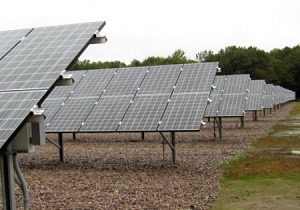Vermont considers measures to improve state's strong solar industry
 Solar industry leaders are optimistic that the Vermont legislature will pass three bills this session to promote further solar development.
Solar industry leaders are optimistic that the Vermont legislature will pass three bills this session to promote further solar development.
There’s a lot of widespread support for solar initiatives in Vermont right now, said Vermont-based AllEarth Renewables spokesman Andrew Savage.
Governor Peter Shumlin has said he would support an expansion of the state’s standard offer and Vermont’s Clean Energy Fund.
The standard offer is Vermont’s feed-in tariff. It was the first in the nation, Savage said.
The program was initially capped at 50 megawatts, and the legislature is considering measures that would pay solar developers a premium for up to 50 megawatts of new solar generation capacity a year.
“That will make Vermont attractive for out-of-state investors and those who want to put their money behind renewable development,” Savage said.
And while 50 megawatts a year sounds like a lot, he said it’s still peanuts compared to the generation capacity in nonrenewable sources.
Vermont Rep. Tony Klein, D-East Montpelier, who is the chair of the House committee in natural resources and energy, introduced the bill.
Savage said industry leaders are hopeful the bill will pass and that Gov. Shumlin has said he would sign it if it does.
Lawmakers are also considering a measure that will expand and extend the Clean Energy Development Fund.
“It has been a vital resource in small-scale solar development,” Savage said. “And it’s set to run out of funding by the middle of the year.”
It’s currently funded through taxes on Yankee Power. There are a few methods on the table for generating revenue to support the fund, Savage said. One includes a complicated proposal about raising fees for storage of nuclear materials. The other less complex proposal recommends a small fee on user bills that would amount to about as much as a postage stamp costs each month, Savage said.
The final piece of legislation has already passed the house and is moving onto the senate for approval. It’s just some technical changes to make recent changes to the net-metering program work with current laws.



